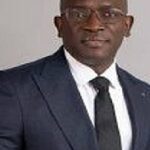See The Challenge with EFCC – Michael Owhoko
See The Challenge with EFCC – Michael Owhoko

Michael Owhoko
In any governmental or institutional structure, there exists an unseen force exerting substantial influence over decision-making, especially on issues of significant interest. Often, this covert influence is known to the leadership and close associates, while the rest of the team remains unaware, mistakenly believing decisions are internally driven without external meddling.
The Economic and Financial Crimes Commission (EFCC) is subject to such invisible control. The leadership and possibly some inner members of the EFCC are aware of this external influence, which eludes most staff members. By granting the President of Nigeria the authority to appoint the EFCC Chairman, lawmakers have inadvertently established an invisible hand guiding the EFCC, with the President embodying this role.
Section 2 (3) of the EFCC (Establishment) Act, 2004, stipulates that “the Chairman and members of the Commission, other than ex-officio members, shall be appointed by the President,” with Senate confirmation. This arrangement binds the EFCC from its inception, depriving it of the autonomy and courage needed to operate independently from the President’s directives. The Commission’s head, adhering to the President’s guidance, operates more as a dependent entity rather than a free agent.
Given this setup, the EFCC Chairman lacks the courage to prosecute the President’s allies without risking repercussions. This dependency persists unless the appointment power is removed from the President, ensuring the EFCC head can act without presidential influence. No matter how dedicated the EFCC Chairman may be, presidential interference hampers their effectiveness. Even if top experts from global agencies like the FBI were brought in, they would face similar constraints.
This interference leads to allegations of selective enforcement by the EFCC in combating financial crimes. The public must realize the President is primarily a politician with loyalists and supporters from his political journey. The President, aiming for political consolidation and re-election, may shield his allies during crises, undermining the EFCC’s ability to pursue powerful offenders.
Historically, the dismissal of past EFCC chairmen often involved presidential influence. To avoid similar fates, the EFCC cautiously handles high-profile cases linked to the President, treating such individuals with deference. This cautious approach hinders the EFCC’s effectiveness against financial crimes.
Most prosecuted political and business figures, such as former governors James Ibori and Diepreye Alamieyeseigha, were targeted due to falling out of favor with the President. The EFCC now mainly responds to public petitions rather than initiating investigations, avoiding discretionary actions, especially against powerful figures prone to financial crimes.
The EFCC’s limited initiative contrasts with the pervasive financial misconduct in Nigeria’s political and economic spheres. Despite acknowledging substantial financial fraud within Nigerian banks, the EFCC has not significantly investigated key players in banking and capital markets. Furthermore, the EFCC’s efforts in combating major financial crimes and corruption remain inadequate compared to the scale of the problem.
To enhance the EFCC’s effectiveness, Nigeria must revise the process for appointing and removing the EFCC Chairman, insulating the role from presidential influence. This is crucial to address the country’s deep-seated financial corruption and ensure the EFCC can function independently and effectively.
Dr. Mike Owhoko, a public policy analyst, author, and journalist based in Lagos, can be reached at www.mikeowhoko.com and followed on X (formerly Twitter) @michaelowhoko.
TRENDING SONGS
 Shock in Anambra: Bride Disappears Moments Before Wedding
Shock in Anambra: Bride Disappears Moments Before Wedding
 Nigerian Woman Returns ₦330 Million Accidentally Credited to Her Account
Nigerian Woman Returns ₦330 Million Accidentally Credited to Her Account
 APC Don Reach Morocco?’ VeryDarkMan Reacts to Seyi Tinubu Poster
APC Don Reach Morocco?’ VeryDarkMan Reacts to Seyi Tinubu Poster
 Bride Breaks Down in Tears as Wedding Meals Were Kept Secretly While Guests Go Home Hungry
Bride Breaks Down in Tears as Wedding Meals Were Kept Secretly While Guests Go Home Hungry
 Odogwu by Day, Robber by Night: How Marriage Joy Turned Into Tragedy
Odogwu by Day, Robber by Night: How Marriage Joy Turned Into Tragedy
 Nigerian Officials Allegedly Pocket N4–6B Weekly Through Smuggling Cartels at Seme–Badagry Border
Nigerian Officials Allegedly Pocket N4–6B Weekly Through Smuggling Cartels at Seme–Badagry Border
 Ahmad Yerima: Naval Officer to Face No Sanctions After Clash with Wike – Matawalle
Ahmad Yerima: Naval Officer to Face No Sanctions After Clash with Wike – Matawalle
 Trending Video: Muslim Man Joins Wife in Hallelujah Challenge ‘Dress Like Your Miracle’ Night
Trending Video: Muslim Man Joins Wife in Hallelujah Challenge ‘Dress Like Your Miracle’ Night
 Woman Seeks Advice as Late Brother’s Wife Refuses to Mourn Him Following His Death With Alleged Mistress
Woman Seeks Advice as Late Brother’s Wife Refuses to Mourn Him Following His Death With Alleged Mistress
 Nobody Cares About Fine Girls In The UK, I Miss Nigeria — Nigerian Lady Laments
Nobody Cares About Fine Girls In The UK, I Miss Nigeria — Nigerian Lady Laments
Share this post with your friends on ![]()













